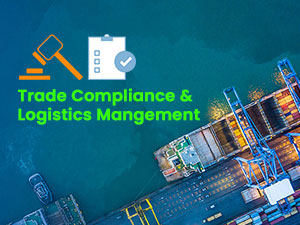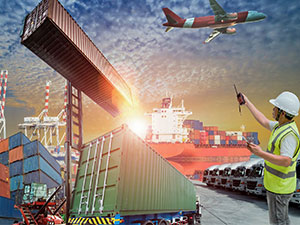Blog Details

The Role of Multilateral Control Regimes in Shaping Global Trade and Security
Multilateral Control Regimes in Shaping
Multilateral control regimes such as the Nuclear Suppliers Group (NSG), Wassenaar Arrangement (WA), Australia Group (AG), and Missile Technology Control Regime (MTCR) are crucial for maintaining global trade and security. These frameworks establish international standards and export control lists to prevent the proliferation of weapons of mass destruction (WMDs) and related technologies. In 2024, these regimes are more relevant than ever, influencing international relations and supply chain operations amid rising geopolitical tensions.
The Impact on Global Trade
Multilateral control regimes have a profound effect on global trade by regulating the export of sensitive goods and technologies. For example, the NSG controls nuclear-related exports, ensuring that nuclear materials and technologies are used solely for peaceful purposes. This regulation not only affects countries' ability to engage in nuclear trade but also influences their energy strategies and technological advancements. Recent discussions on expanding NSG membership to include countries like India reflect the regime's evolving role in global nuclear governance, according to The Hindu in April 2024.
The Wassenaar Arrangement focuses on conventional arms and dual-use goods, which can serve both civilian and military purposes. This has significant implications for industries like electronics, aerospace, and telecommunications, as companies must navigate stringent export controls to access international markets. The WA's recent update to its control lists now includes more advanced technologies, such as cybersecurity tools, indicating a shift towards addressing new security challenges, as reported by Reuters in June 2024.
The Australia Group and MTCR similarly oversee the export of chemical and biological weapons, and missile technologies, respectively. These controls shape global supply chains by setting compliance standards for companies and nations. The MTCR's recent expansion of its missile technology controls to include drones has highlighted its role in addressing emerging threats, according to BBC News in March 2024.
Security Implications
The primary objective of these control regimes is to enhance global security by preventing the spread of WMDs and other dangerous technologies. They achieve this by establishing international norms and facilitating information exchange among member states. For instance, the MTCR has been instrumental in curbing the proliferation of missile technology, which could otherwise contribute to regional and global instability. Recent US intelligence reports have praised the MTCR's effectiveness in preventing the spread of missile technology to hostile states, as noted by The Wall Street Journal in May 2024.
As 2024 progresses, the role of these regimes in ensuring security becomes increasingly critical, especially with the rapid development of new technologies like artificial intelligence and quantum computing. These emerging technologies have significant military applications, making it essential to regulate their trade to prevent misuse. By setting and updating export control lists, multilateral control regimes help mitigate the risks associated with these advanced technologies, thereby promoting international stability.
Challenges and Opportunities
Despite their importance, multilateral control regimes face several challenges. One of the main issues is the inconsistent implementation and commitment levels among member states. While some countries strictly adhere to the established norms, others may prioritize economic interests over security concerns, leading to uneven enforcement. Recent UN reports have highlighted discrepancies in how different member states enforce export controls, as reported by UN News in July 2024.
However, there are opportunities for these regimes to adapt and strengthen their effectiveness. Enhanced collaboration among member states can lead to better enforcement and monitoring. Furthermore, integrating emerging technologies such as blockchain for tracking and tracing sensitive goods can improve transparency and accountability in global supply chains. The EU's pilot blockchain project for tracking dual-use goods demonstrates this potential, according to Financial Times in August 2024.
Conclusion
In conclusion, multilateral control regimes like the NSG, WA, AG, and MTCR play a vital role in shaping global trade and security. By regulating the export of sensitive goods and technologies, these frameworks prevent the proliferation of dangerous weapons and enhance international stability. As we navigate the complex geopolitical landscape of 2024, the importance of these regimes cannot be overstated. Their continued adaptation and evolution will be crucial in addressing the challenges posed by new technologies and maintaining a secure global environment.
4PL Consultancy has a team of experts in Tariff classifications of wide variety of Product lines – Medical spares, Aerospace, Radiation Oncology machines & spares etc.





